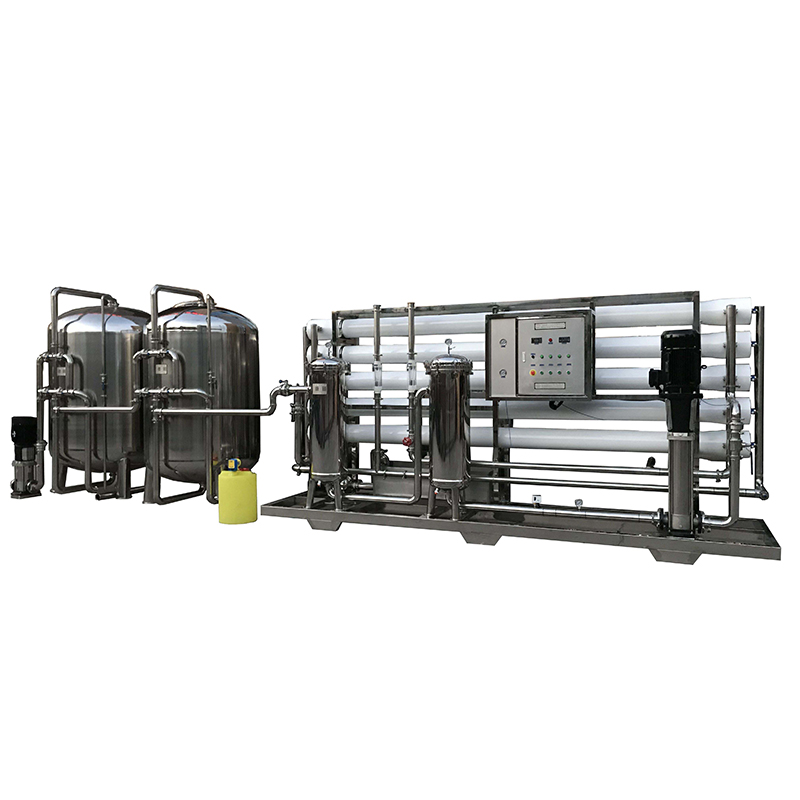Water Treatment System Drinking Water Manufacturer
For modern industrial water systems, there are multiple water usage segments and demands. Industrial and mining enterprises not only require large amounts of water, but also have certain requirements for water sources, water pressure, water quality, water temperature, and other aspects.
Water usage can be classified according to its purpose, including the following types:
Process water: Water directly used in industrial production is called process water. Process water includes the following types:
Cooling water: Used to absorb or transfer excess heat from production equipment to ensure that the equipment operates at a normal temperature.
Process water: Used for manufacturing, processing products, and related water usage in manufacturing and processing processes. Process water includes water for products, cleaning, direct cooling, and other process water.
Boiler water: Used to generate steam for process, heating, or power generation purposes, as well as water required for boiler water treatment.
Indirect cooling water: In the industrial production process, water used to absorb or transfer excess heat from production equipment, which is separated from the cooled medium by heat exchanger walls or equipment, is called indirect cooling water.
Domestic water: Water used for the living needs of workers in the factory area and workshop, including miscellaneous uses.
For industrial and mining enterprises, water systems are large and diverse, so it is necessary to design and manage water resources reasonably based on the requirements of different uses, ensuring reliable water supply and compliance with required water quality, water pressure, and water temperature.
Based on the information provided, here is a summary of the different water quality requirements for various applications:
Conductivity ≤ 10μS/CM:
1. Animal drinking water (medical)
2. Pure water for ordinary chemical raw material preparation
3. Pure water for food industry ingredients
4. Deionized pure water for general electroplating industry rinsing
5. Desalinated pure water for textile printing and dyeing
6. Pure water for polyester slicing
7. Pure water for fine chemicals
8. Pure purified water for domestic drinking
9. Other applications with the same pure water quality requirement
Resistivity 5-10MΩ.CM:
1. Pure water for lithium battery production
2. Pure water for battery production
3. Pure water for cosmetics production
4. Pure water for power plant boilers
5. Pure water for chemical plant ingredients
6. Other applications with the same pure water quality requirements
Resistivity 10-15MQ.CM:
1. Pure water for animal laboratories
2. Pure water for glass shell coating
3. Ultra-pure water for electroplating
4. Pure water for coated glass
5. Other applications with the same pure water quality requirements
Resistivity ≥ 15MΩ.CM:
1. Sterile pure water for pharmaceutical production
2. Pure water for oral liquid
3. Deionized pure water for high-end cosmetics production
4. Pure water for electronic industry plating
5. Pure water for optical material cleaning
6. Pure water for electronic ceramic industry
7. Pure water for advanced magnetic materials
8. Other applications with the same pure water quality requirements
Resistivity ≥ 17MΩ.CM:
1. Softened water for magnetic material boilers
2. Pure water for sensitive new materials
3. Pure water for semiconductor material production
4. Pure water for advanced metal materials
5. Pure water for anti-aging material laboratories
6. Pure water for non-ferrous metals and precious metal refining
7. Pure water for sodium micron-level new material production
8. Pure water for aerospace new material production
9. Pure water for solar cell production
10. Pure water for ultra-pure chemical reagent production
11. High-purity water for laboratory use
12. Other applications with the same pure water quality requirements
Resistivity ≥ 18MQ.CM:
1. Pure water for ITO conductive glass manufacturing
2. Pure water for laboratory use
3. Pure water for production of electronic-grade clean cloth
4. Other applications with the same pure water quality requirements
In addition, there are specific requirements for water conductivity or resistivity for certain applications, such as pure water with a conductivity ≤ 10μS/CM for the production of white wine, beer, etc., and pure water with a resistivity ≤ 5μS/CM for electroplating. There are also specific requirements for water conductivity or resistivity for equipment used in various production processes.
Please note that the information provided is based solely on the given text. Specific requirements for each application may vary depending on industry standards and regulations. It is always best to consult with experts or professionals in the specific industry for accurate and detailed information.




